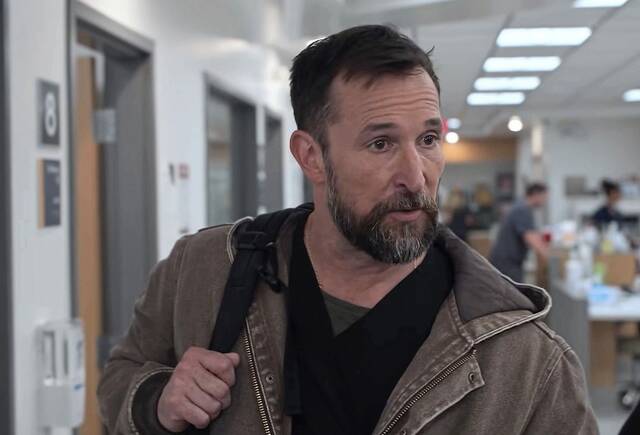Trib Total Media TV writer Rob Owen answers reader questions every Wednesday at TribLive.com in a column that also appears in the Sunday Tribune-Review.
Q: Why does WPXI constantly rotate their morning weather people? They have three to four different weather people on the morning news each week.
— Rob, Greensburg
Rob: It’s summer and folks who work in TV are also entitled to take V-A-C-A-T-I-O-N (sing it like the Go-Go’s!) which necessitates schedule adjustments. That’s why there has been some rotation on Channel 11’s morning newscast where Scott Harbaugh is the assigned meteorologist.
Q: On Aug. 21, I had Fox 53 on earlier in the afternoon. Promos were run throughout the afternoon with David Johnson highlighting a story about fire hydrant problems in Plum that would be covered at 6:30 p.m.
The 6:30 news just concluded and the story that was teased all afternoon was never on. I don’t think I missed it. This is not the first time that I have noticed this. Other channels are just as guilty. What happened to the teased story? Making promises and failing to deliver isn’t good for business, is it?
— Tom via email
Rob: Tom is correct: Overpromising and underdelivering is a good way to send viewers running to another channel as their news source.
I sent Tom’s question to WPXI news director Scott Trabandt but never heard back so there’s no way to know what really happened in this instance. My guesses would be: Maybe it was an old promo for a prior day’s 6:30 p.m. newscast that got recirculated by mistake or the station expected to get the story for 6:30 but then it didn’t come together in time. The story did run somewhere because it’s posted to the Channel 11 website.
Q: Does AT&T SportsNet Pittsburgh use recorded crowd reactions during Pirates broadcasts? On Aug. 23, a 92-minute rain delay during the sixth inning led to fan exodus. When the game resumed the stands looked practically empty, yet crowd reaction sounded loud.
— Becky, Scott Township
Rob: Even if a big chunk of the crowd leaves, those who remain are not going to be silent and the microphones pick up their reactions.
My understanding is no recorded crowd reactions are used. The only exception was early in the pandemic when games were played with no spectators in the stadium. But that practice of using prerecorded crowd noise was discontinued once fans returned to the stands.
Q: One of the issues in the current writers and actors strikes in Hollywood (and elsewhere), is the fact that streaming television shows have significantly shorter seasons than those on the traditional broadcast networks.
I’ve noticed that popular British shows tend to air six-to-eight-week seasons (and some, like “Endeavour” and “DI Ray” shorter, three-week seasons). Even older shows now available on Tubi and Acorn (“Where the Heart Is” and “Midsomer Murders”) often have these shorter seasons, when compared to American shows.
Considering that the Writers Guild in Hollywood states that writers cannot earn sustainable compensation with the shortened seasons on the streaming services, how are British television writers compensated? Is there any way that the British model can be used in the U.S.?
— Buzz, via email
Rob: My sense is British TV works under an entirely different business model (viewers pay a license fee to watch and record TV that funds program production) but I wanted to confirm that so I asked the only writer/director I know who has worked in both American and British TV — Jeff Greenstein, a veteran writer on “Friends,” “Partners” (the good one that was on Fox in 1995-96, not the terrible 2012-13 CBS rip-off), “Will & Grace” and “Desperate Housewives.” He also wrote and directed the series finale of 2013 BBC comedy “Way to Go.”
“The short answer is that British TV, thanks to Margaret Thatcher, is non-union,” Greenstein explained. “Shows are typically written by one writer, maybe two. At the time I did a show in the UK, it seemed like British producers were actually yearning for something more like the American model with larger writing staffs so they could pump out more episodes and longer seasons. Obviously, the trend has moved away from that.”







